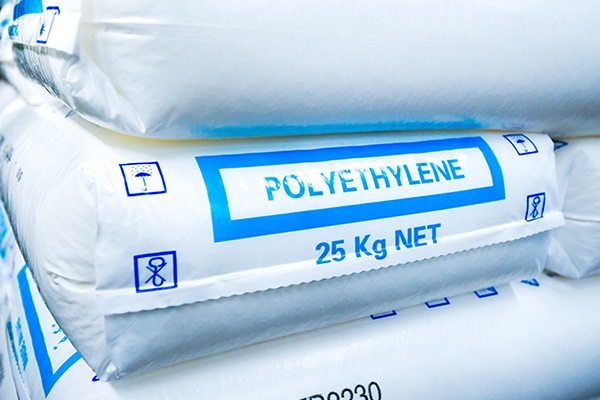
Mineral & Chemical
In Mineral and Chemical environments, we understand the challenges you face using FIBCs. Every Mineral and Chemical has its own unique properties which affect the filling and handling in FIBCs. From minimizing dust (or sifting) to managing the risk of static discharge, we can assist you in designing the right bag for your product.
How We Handle It
In Mineral and Chemical environments, we understand the challenges you face using FIBCs. Every Mineral and Chemical has its own unique properties which affect the filling and handling in FIBCs. From minimizing dust (or sifting) to managing the risk of static discharge, we can assist you in designing the right bag for your product.

Type A
Type A FIBCs are made of plain-woven polypropylene and other non-conductive fabrics. There is no static protection provided by Type A FIBCs. Use Type A bulk bags to transport non-flammable products safely. There should not be any flammable solvents or gases present around a Type A FIBC.
Use Type A bulk bags when:
- Transporting non-flammable products
- No flammable solvents or gases are present around the bag

Type A
Type A FIBCs are made of plain-woven polypropylene and other non-conductive fabrics. There is no static protection provided by Type A FIBCs. Use Type A bulk bags to transport non-flammable products safely. There should not be any flammable solvents or gases present around a Type A FIBC.
Use Type A bulk bags when:
- Transporting non-flammable products
- No flammable solvents or gases are present around the bag
Type B
Like Type A FIBCs, Type B bags are made of plain-woven polypropylene and other non-conductive fabrics. They provide no static protection. The difference between Type B and Type A bags is that Type B bags use materials that have a low breakdown voltage. This prevents propagating brush discharges. They are not considered anti-static bulk bags because they do not dispel electrostatic charges.
Use Type B bulk bags when:
- Transporting non-flammable products
- No flammable solvents or gases are present around the bag
- The environment has dust with ignition energies less than 3mJ


Type B
Like Type A FIBCs, Type B bags are made of plain-woven polypropylene and other non-conductive fabrics. They provide no static protection. The difference between Type B and Type A bags is that Type B bags use materials that have a low breakdown voltage. This prevents propagating brush discharges. They are not considered anti-static bulk bags because they do not dispel electrostatic charges.
Use Type B bulk bags when:
- Transporting non-flammable products
- No flammable solvents or gases are present around the bag
- The environment has dust with ignition energies less than 3mJ

Type C
Type C FIBCs, conductive FIBCs, or ground-able FIBCs, are made from non-conductive polypropylene fabrics interwoven with conducting filaments sewn into the fabric. The conducting threads are connected to a designated ground during filling and discharging.
Use Type C bulk bags when:
- Transporting flammable products
- Flammable vapors, gases, or combustible dust are present
- DO NOT USE when ground connection is not present or has become damaged.

Type C
Type C FIBCs, conductive FIBCs, or ground-able FIBCs, are made from non-conductive polypropylene fabrics interwoven with conducting filaments sewn into the fabric. The conducting threads are connected to a designated ground during filling and discharging.
Use Type C bulk bags when:
- Transporting flammable products
- Flammable vapors, gases, or combustible dust are present
- DO NOT USE when ground connection is not present or has become damaged.
Type D
Type D FIBCs are made from antistatic and static dissipative fabrics. This prevents the occurrence of incendiary sparks, brush discharges and propagating brush discharges. There is no need for a connection from the FIBC to a designated ground/earth.
Use Type D bulk bags when:
- Transporting flammable powders
- Flammable vapors, gases, or combustible dust are present
- DO NOT USE Type D FIBCs when the bag surface is contaminated or covered with
conductive materials, such as water or grease.


Type D
Type D FIBCs are made from antistatic and static dissipative fabrics. This prevents the occurrence of incendiary sparks, brush discharges and propagating brush discharges. There is no need for a connection from the FIBC to a designated ground/earth.
Use Type D bulk bags when:
- Transporting flammable powders
- Flammable vapors, gases, or combustible dust are present
- DO NOT USE Type D FIBCs when the bag surface is contaminated or covered with
conductive materials, such as water or grease.
